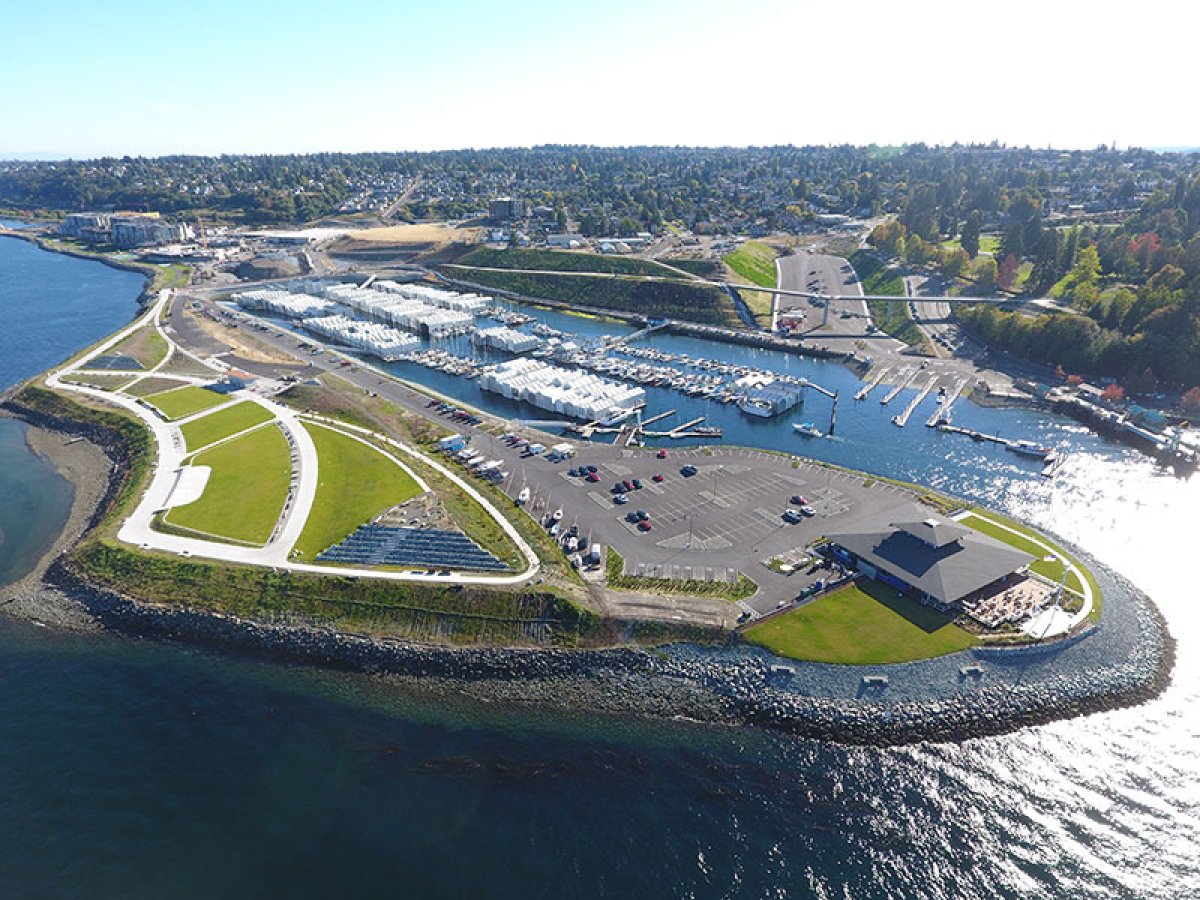On Saturday, July 6, Metro Parks opened a new park in Tacoma. “Dune Peninsula at Point Defiance Park” was the culmination of years of work at Metro Parks. Hundreds of thousands of cubic yards of dirt moved… EPA cleanup… construction… and more. It was an amazing achievement that the voters of Tacoma, Metro Parks, and the many people who took on this challenge should be very proud of.
And long-time readers know that the name of the park has been something of a quixotic goal for me since 2013. Along with some others like Katy Evans and Dan Rahe, we pushed to name the park after Frank Herbert, a native Tacoman. The new park ended up being called Dune Peninsula, and it contains Frank Herbert Trail. At the opening, I was asked to speak about why Dune and Frank Herbert are not only important to Tacoma but why this particular piece of land is such a great park to carry the name. Below is the speech.
Thank you. Good morning. I want to share a little bit about the book Dune, but to get there we need to start with its author, Tacoma native Frank Herbert.
Frank Herbert was born in 1920, and he had the kind of childhood that seems impossible today. At the age of nine he rowed from here to the San Juan Islands all on his own. When he got tired, he would hitch a ride with a passing barge by holding on to its hulls and letting it pull him for a ways. At 14, he swam across the Tacoma Narrows. Again, alone. A few years later he and a friend sailed from Tacoma up to British Columbia and back again.
But this graduate from Lincoln High School wasn’t just outdoorsy. He loved books and writing too. He wrote for the Tacoma Ledger and the Tacoma Times and for a while he was a speechwriter for an Oregon Senator.
It was there that he discovered the dunes along the coast near Florence, Oregon, and the idea of a world covered with giant sand dunes… was born.
But it was here in Tacoma, that the environmental message of Dune was born. Because the kid with a childhood that sounds like something out of Huck Finn had a deep respect for nature—and the Puget Sound especially. And the polluting of the Sound at the time—this was in the 50s—dismayed him. To quote Frank, the ASARCO smelter created “air so thick you could chew it.”
And then there’s this bit… and I want to get this part right, so I’m going to quote from the biography of Frank Herbert, written by his son Brian. So Brian writes of his dad: “The increasing pollution he saw all around him, in the city of his birth, contributed to his resolve that something had to be done to save the Earth. This became, perhaps, the most important message of Dune.”
When Dune was published in 1965, it quickly became a landmark novel of science fiction. And the environmental message was a big part of the reason. Dune is about something, not just an excuse to write about ray guns and moon bases like much of the genre that had come before it. It’s something to be taken seriously, and the environmental theme still resonates today.
In fact, Metro Parks is not the first agency to name something after Dune. NASA uses naming schemes for different planets. For example, all the mountains on Venus are named after goddesses. Well, on Saturn’s moon Titan, all the plains are named after planets in the Dune novels. So while there are geographical features named after Dune in space for some time now, we finally have a geographical feature named for the book here on Earth, in Frank’s hometown.
What I love about the name Dune Peninsula is that our collective actions to open this park mirror the story of the book. In the book, a group of characters called the Fremen are planning to restore the planet’s environment after its ecological collapse. And that’s very much like what we’ve done with this park today. We’ve taken a wasteland—a wasteland created by the very smelter that helped inspire Dune, no less!—and we’ve turned it into a beautiful park.
Given that, naming this park Dune Peninsula has a cyclical nature to it that I just love. It’s important to use this park to remember our past environmental mistakes while also celebrating the ways we’re making progress.
But it’s also important to me that we remember not just the message and the book but Frank Herbert himself. Because one of the best-selling and most important writers of science fiction came from Tacoma. To me, at eleven or twelve or however old I was when I first read the author bio in the back of my paperback of Dune, this was stunning. You mean people can come from Tacoma and go on to do great things? It stuck with me.
So remembering Frank Herbert is not just about the environment but about the arts. For many years, the tourism slogan for Tacoma was “Where Art and Nature Meet.” That describes Frank Herbert to a T. And, looking around at this beautiful setting, I can’t think of a more perfect spot to remember him, and the promise of the novel Dune, than right here.
Thank you.
